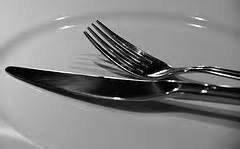It makes sense—just eat less and you will lose weight. That is what Davida and Gittel, thought. Both in their mid to late 40’s they came to me for consultations on weight loss several years ago. Both were on calorie restricted programs and were exercising to some extent and both were very frustrated as all of their efforts not only weren’t resulting in weight loss, their weight was slowly creeping up. For them, their math wasn’t adding up. If I am using more calories than I am consuming, why isn’t the weight coming off? Their frustration wasn’t helping their cause either as the stress caused by their failure to lose was also having a negative effect on their weight, and ultimately their health. Their stories are far more common than you think and both I and my staff dieticians see this all the time. Sometime, less isn’t necessarily better!
Allison Hagendorf is a health coach. She points out the following 5 points regarding weight loss that you must have for success. This is true for everyone but particularly females over the age of 40.
Understand BMR
Resting or basal metabolic rate (BMR) is the baseline calorie amount you need to support body functions like breathing and heart rate. In other words, it describes the number of calories you need to survive at rest. Your BMR is determined by factors such as your gender, age, height and weight. According to Mayo Clinic, “Your basal metabolic rate accounts for about 70 percent of the calories you burn every day.”
Restriction Results in Fat STORAGE
 “A starvation diet does not mean the absence of food; it means cutting the total caloric intake to less than 50% of what the body requires,” according to NetWellness. If you end up depriving your body to the extreme, it will adapt to low calorie consumption by reducing the amount of energy it uses to function. And then it will stop burning fat and start metabolizing lean tissue and muscle mass instead. Once that process begins, your rate of metabolism steadily decreases as a safety measure to account for any future food shortages. Bottom line, starving your body will not get you where you want to be.
“A starvation diet does not mean the absence of food; it means cutting the total caloric intake to less than 50% of what the body requires,” according to NetWellness. If you end up depriving your body to the extreme, it will adapt to low calorie consumption by reducing the amount of energy it uses to function. And then it will stop burning fat and start metabolizing lean tissue and muscle mass instead. Once that process begins, your rate of metabolism steadily decreases as a safety measure to account for any future food shortages. Bottom line, starving your body will not get you where you want to be.
Next Steps
Getting enough calories, maintaining lean body mass and building muscle can all help jump-start a sluggish metabolism. If you want to get out of starvation mode, be sure to eat enough calories. To prevent a slowdown in metabolism, most experts recommend consuming no fewer than 1,200 calories per day. According to the American College of Sports Medicine, “women should eat at least 1,200 calories per day and men should eat at least 1,800.”
For apparently healthy adults, individual caloric needs should be adjusted according to activity level, which can be calculated by a nutritionist.
Muscle Up
Muscle tissue burns more calories than fat. Losing weight at a slow and steady pace helps to ensure you are actually burning fat as opposed to calorie-burning muscle. This is why I prefer the term “fat loss” over “weight loss.” In addition to preserving your muscle when trying to lose weight, you can also get yourself out of starvation mode by building muscle mass. Body-weight exercises like squats, lunges, push-ups, and pull-ups as well as traditional weight training, can help build lean muscle and give your metabolism an extra boost. Eating nutrient-dense sources of protein, carbohydrates and healthy fats will also help promote muscle growth.
Reflect
Have you taken a moment to really examine why you want to lose weight in the first  place? What is that intrinsic motivation that initially inspired you to make this decision? This is the time to ground yourself and embrace this journey with a fresh perspective. Wanting to have a healthy life with good quality is a great start—just make sure you’re doing it as healthfully as possible.
place? What is that intrinsic motivation that initially inspired you to make this decision? This is the time to ground yourself and embrace this journey with a fresh perspective. Wanting to have a healthy life with good quality is a great start—just make sure you’re doing it as healthfully as possible.
These five points are essential. With both Davida and Gittel, I increased their calories and I changed their exercise routines to be more balanced, that is, to make sure they were getting enough aerobics for calorie burn and enough muscle building to increase metabolism. In addition, I made sure they were eating smaller meals more often. That also keeps your metabolism at elevated levels. Davida wrote the following in a local publication after her experience in my program:
“I went to see Alan Freishtat. I had spoken to him on the phone and explained my problem. He was encouraging. When I went to his office I further explained both where I was stuck and what I had been doing in the past. Alan asked me a long set of questions, weighed and measured me, and then began to set up a program for me.
Alan told me some things that surprised me very much, as well as a few that I had heard forever and chose to ignore. Since he was very confident that he could help, I promised to do everything he said for three months minimum. The old news that I had heard all my life but was now committed to follow was that one must eat breakfast.  Of course we have all heard that, and I for one have always ignored it. I “knew” that for me it was a mistake to eat breakfast, and so for thirty years, I have not. Apparently, however I would now be starting to. I also was now committed to drinking the amount of water I have always read was necessary, and hoped I was drinking, but in reality was not.
Of course we have all heard that, and I for one have always ignored it. I “knew” that for me it was a mistake to eat breakfast, and so for thirty years, I have not. Apparently, however I would now be starting to. I also was now committed to drinking the amount of water I have always read was necessary, and hoped I was drinking, but in reality was not.
The thing that shocked me most was the news that I eat too little. Though I am a good-sized woman and always on the go, I nonetheless have a rather small appetite. I often drink all day and then eat a large salad with tuna for the evening meal with my kids. On the whole, wanting to lose weight, I ate around the 900-calorie mark a day. Since I have a very efficient metabolism and never feel run down or tired, thank G-d, I always thought that the less I ate the better my diet would go. WRONG. Alan explained to me that in fact my body thinks I am always starving, and hesitates before it burns any fat for fear it may never see food again. Eating only once a day is the worst thing I could have been doing. Not only was I eating once a day, but I was also eating way too little. At this point I looked at him askance – for somehow eating more to make me lose weight didn’t seem like such good advice. I mentioned this, and I went, promising to eat every few hours, specific foods according to his instructions.
As I already work out every day, the changes to my activity level were at the start not drastic and were mostly limited to increased weight training – a stretching routine to do before and after working out (something I had also always skipped) and an added ten minutes to my aerobic workout on days when I don’t weight train. The truly difficult part was getting used to eating every couple of hours. Now I am stopping to remind myself to eat- something new – not so easy. I have had to jump out of meetings for a quick piece of fruit or a cracker. There was one extreme day that I pulled off the highway to have a salad that I had prepared and forgotten to eat.
And yet – though it seemed like a lot of trouble, and I am eating almost twice as much as I was eating – when I returned to Alan a month later for a conference, I was three kilos lighter and had lost two inches off my waist. Pretty impressive, especially since I had been stuck for over a year!”
And Gittel, after 6 weeks lost 4.5 kilos.  Both were committing the exact same mistakes that unfortunately too many people commit. See a registered dietician so you can find out how many calories you have to eat in order NOT to be eating too little. Eat more often and build muscle. Keep in mind this is a process that can take some time to kick in, so don’t get frustrated and be consistent. Eating the amount of quality food that your body needs will ensure weight loss and “add hours to your day, days to your year, and years to your life.”
Both were committing the exact same mistakes that unfortunately too many people commit. See a registered dietician so you can find out how many calories you have to eat in order NOT to be eating too little. Eat more often and build muscle. Keep in mind this is a process that can take some time to kick in, so don’t get frustrated and be consistent. Eating the amount of quality food that your body needs will ensure weight loss and “add hours to your day, days to your year, and years to your life.”

Leave A Comment